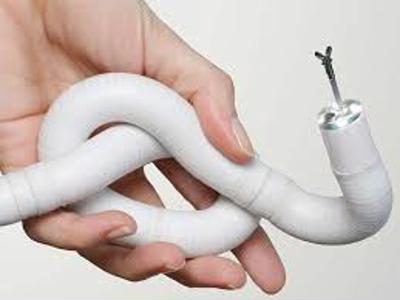Colonscopy is a diagnostic test executed to exploring the inner walls of the colon, with the purpose of discovering possible lesions, occlusions, tumor masses. It is an important tool for prevention, which allows to identify and, if necessary, remove instantly even very small and early cancers, preventing their development and degeneration; for this reason, it is recommended as a correct screening activity for all those at risk: for example, for those who are familiar with colon cancer or after the age of 50.
The colonscopy is performed through the anal introduction of a probe, called colonscope, which is the subject of our study and has a diameter from about 11 mm to 13 mm. The probe is equipped with a micro-camera and shows in real time the inside of the colon. To facilitate the penetration of the probe, the colon itself is dilated by blowing in air, a process that can in some cases be very painful.
Naturally, the availability of a technologically advanced colonoscope, and the perfect knowledge of its characteristics, play a fundamental role for the success of the procedure, but also to make it more tolerable for the patient. Each colonoscope has its own characteristics, for which it must be selected, and the endoscopist must be able to 'pilot it' on the basis of them.
However, colonscopy has limitations: it is not possible to view all the tumors; there can be bleedings following the removal of tumor masses, cardio-vascular problems following the use of sedatives; although very rare, there is a risk of death.
Finally, as mentioned before, our project will be focused on the study of the probe. We will try to analyze it in all its complete functioning.

Medical tags
- Clinical need
- Monitoring purpose
- Area
- Colorectal surgery
- Technology
- Monitoring device
- Project keywords
- E-Worm Project
- Device classification
- IIa